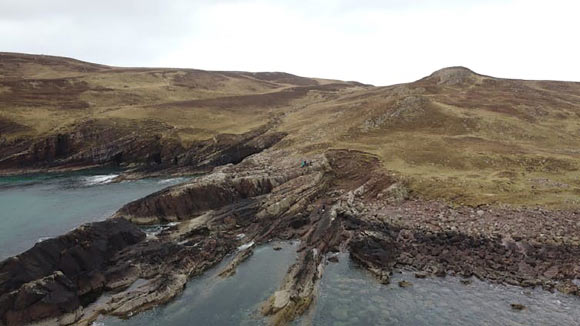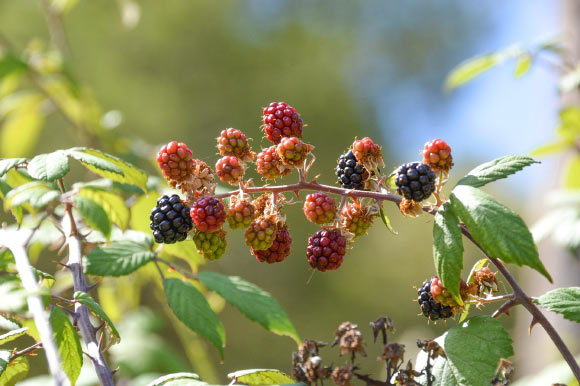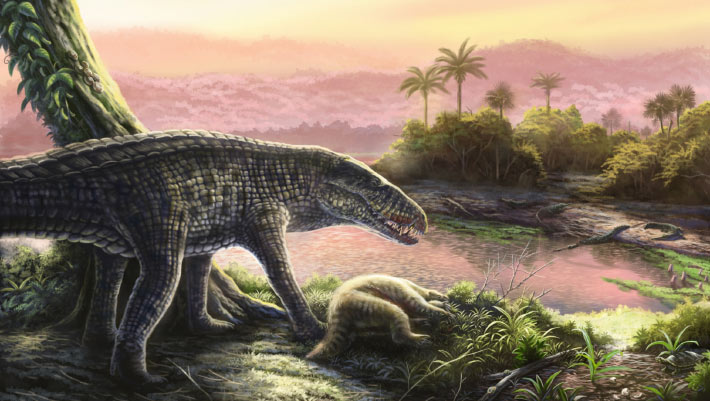Previously believed to have occurred 1.2 billion years ago, this ancient impact created the Stac Fada Member, a layer of rock that holds vital clues to Earth’s ancient past. According to new research led by Curtin University, it occurred 990 million years ago. This finding revises the age of some of the oldest known non-marine microfossils in the United Kingdom and their role for timing the eukaryotic colonization of land.
“We used tiny zircon crystals as geological ‘time capsules’ to date the impact to 990 million years ago,” said Curtin University’s Professor Chris Kirkland.
“These microscopic crystals recorded the exact moment of impact, with some even transforming into an incredibly rare mineral called reidite, which only forms under extreme pressures.”
“This provided undeniable proof that a meteorite strike caused the Stac Fada deposit.
“When a meteorite hits, it partially resets the atomic clocks inside the zircon crystals and these ‘broken timepieces’ are often unable to be dated but we developed a model to reconstruct when the disturbance occurred, confirming the impact at 990 million years ago.”
The impact event occurred at a similar time to the emergence of some of the earliest freshwater eukaryotes, which are the ancient ancestors of plants, animals and fungi.
“The revised dating suggests these life forms in Scotland appeared at a similar time to a meteorite impact,” Professor Kirkland said.
“This raises fascinating questions about whether large impacts may have influenced environmental conditions in ways that affected early ecosystems.”
“While the impact crater itself has yet to be found, this study has collected further clues that could finally reveal its location.
“Understanding when meteorite impacts occurred helps us explore their potential influence on Earth’s environment and the expansion of life beyond the oceans.”
The team’s results appear in the journal Geology.
_____
C.L. Kirkland et al. A one-billion-year-old Scottish meteorite impact. Geology, published online April 28, 2025; doi: 10.1130/G53121.1

























